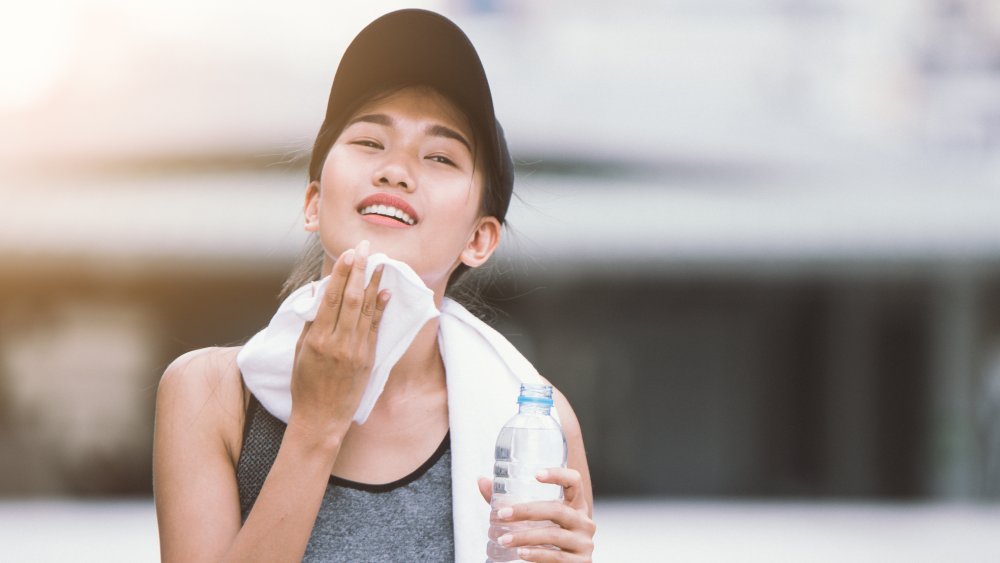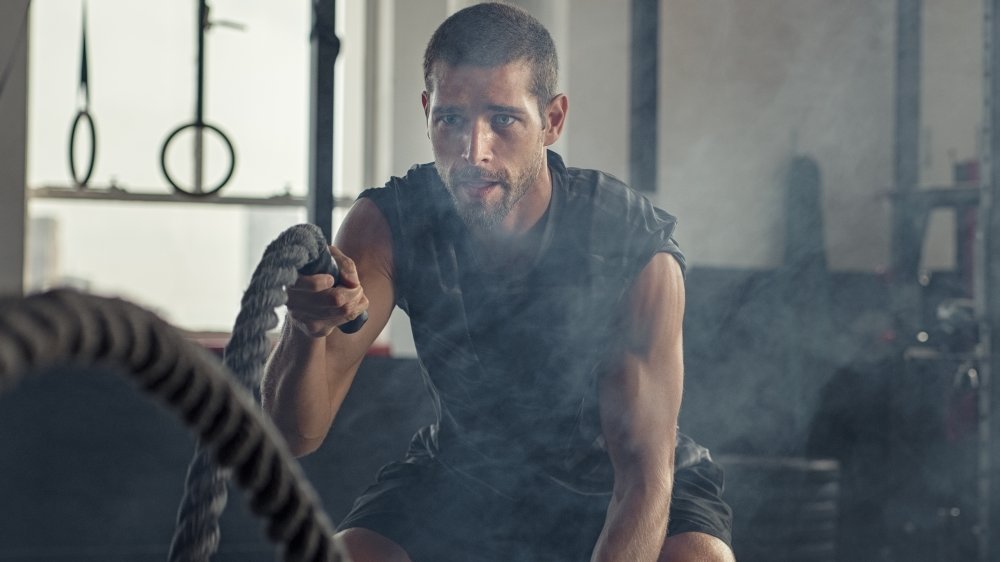What It Really Means When You Sweat A Lot During A Workout
One factor people tend to base the efficacy of workouts on is the amount they sweat. But the old adage, "the more you sweat the better job you're doing," is a huge misconception. In fact, there are several different reasons to explain why you're sweating so much while exercising.
Age, gender, body composition, physical conditioning, genetics, and the environment in which you exercise all play a role in how much you sweat (via Healthline). Sweating is essential and a completely normal part of our physiology. It is necessary to ensure our core temperature stays at a regulated temperature.
Our bodies consist of both eccrine and apocrine sweat glands. Eccrine glands are located throughout the body, concentrated at the palms of the hands and soles of the feet. When the internal temperature of the body begins to rise, eccrine glands release water to the surface of the skin. That water, sweat, then evaporates, cooling the skin (via NCBI). This type of sweat tends to be odorless.
Apocrine glands on the other hand, are located primarily in areas like the underarm region and the groin and tend to produce odorous sweat.
Factors affecting how much you sweat
While everyone has the same types of sweat glands, we surely don't all sweat the same. Younger people tend to sweat more than older individuals, males sweat more than females, athletes more than the average Joe, and people with a larger body mass more than those with lower body mass. The environment in which you exercise also contributes. You may sweat more in a hot yoga class than a cool kickboxing class, not due to the intensity of the workout, but merely because of the external environment which requires your body to cool down more.
In some instances, conditions like hyperhidrosis may explain over sweating. Hyperhidrosis is an excessive production of sweat secondary to increased sympathetic nerve stimulation, regardless of conditioning or the physical environment.
While sweating during a workout can be frustrating, prescription-strength antiperspirants, sweat-wicking clothing, avoiding heated environments, and even Botox injections can help alleviate symptoms (via Health). So don't worry the next time your workout leaves you dripping — just make sure to make time to cool down and drink lots of water.


